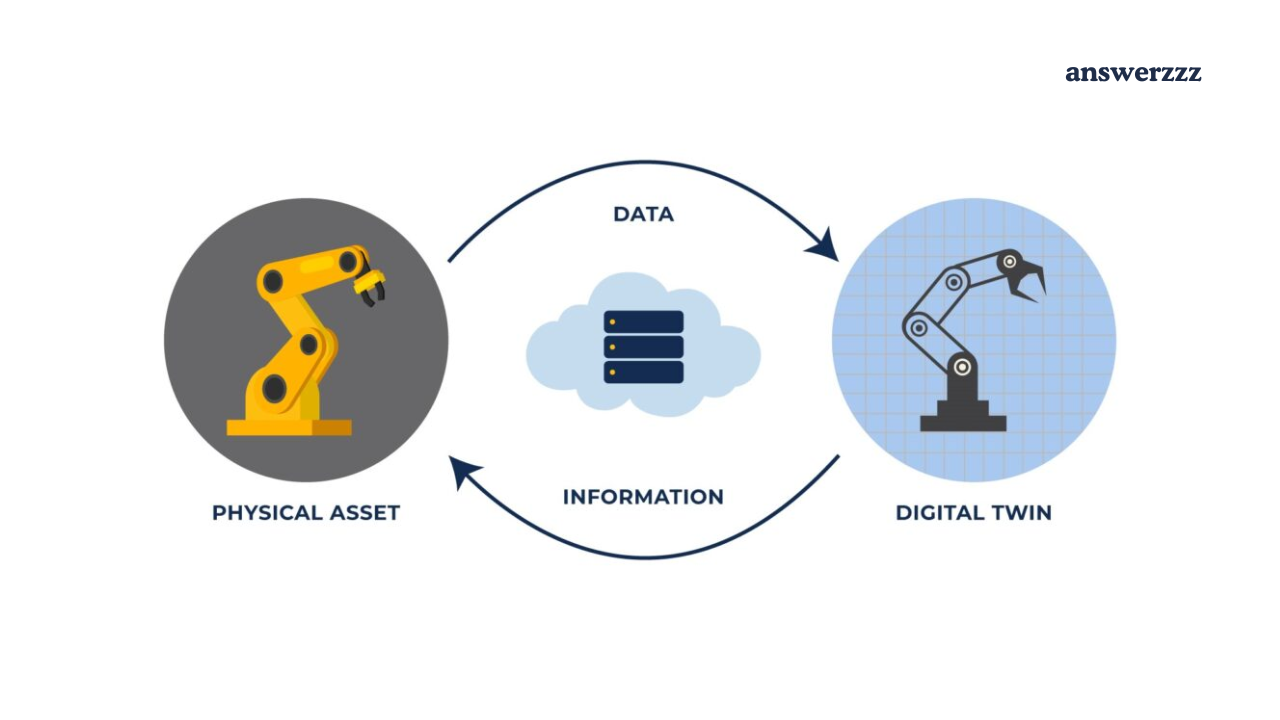Quantum computing is no longer just a concept confined to science fiction; it is rapidly becoming a reality, poised to transform various sectors by solving problems that traditional computers cannot. In this comprehensive guide, we will explore what quantum computing is, how it differs from classical computing, its potential applications, challenges, and the future of this groundbreaking technology.
What is Quantum Computing?
Quantum computing is a type of computation that harnesses the principles of quantum mechanics to process information in fundamentally different ways than classical computers. Classical computers use bits as the smallest unit of data, which can be either a 0 or a 1. In contrast, quantum computers use quantum bits, or qubits, which can exist in multiple states simultaneously due to superposition. This ability allows quantum computers to perform complex calculations at speeds unattainable by classical systems.
Key Concepts in Quantum Computing
- Superposition: Superposition is a fundamental principle of quantum mechanics that allows qubits to be in multiple states at once. While a classical bit can represent a single state (0 or 1), a qubit can represent both 0 and 1 simultaneously. This property enables quantum computers to process a vast amount of information in parallel.
- Entanglement: Entanglement is another quantum phenomenon where the states of two or more qubits become interconnected. When qubits are entangled, the state of one qubit can instantaneously affect the state of another, regardless of the distance separating them. This feature allows quantum computers to solve problems that involve multiple variables more efficiently.
- Quantum Gates: Quantum gates are the basic building blocks of quantum circuits, similar to logic gates in classical computing. They manipulate qubits through quantum operations, allowing the system to perform calculations. Quantum gates are reversible, meaning they can be undone, a property that is crucial for quantum algorithms.
How Quantum Computing Differs from Classical Computing
The fundamental differences between quantum and classical computing can be summarized as follows:
- Data Processing: Classical computers process information sequentially, while quantum computers can perform many calculations simultaneously due to superposition.
- Problem-Solving: Quantum computers are particularly well-suited for certain types of problems, such as factoring large numbers, simulating quantum systems, and optimizing complex solutions. Classical computers struggle with these tasks due to the exponential growth of possibilities as the problem size increases.
- Scalability: While scaling classical computers involves adding more processors, scaling quantum computers requires increasing the number of qubits. The challenge lies in maintaining coherence and reducing noise as the system grows.
The Current State of Quantum Computing
As of 2024, the field of quantum computing is advancing rapidly, with several major players investing heavily in research and development. Companies like IBM, Google, Microsoft, and startups such as Rigetti and IonQ are at the forefront of this technology. These organizations are developing quantum processors, algorithms, and software tools to make quantum computing more accessible and practical.
Quantum Hardware Development
Various approaches to building quantum computers are being explored, including:
- Superconducting Qubits: This approach uses superconducting materials to create qubits that can be manipulated using microwave pulses. Companies like IBM and Google are using this method in their quantum processors.
- Trapped Ions: This method uses charged atoms (ions) that are trapped and manipulated using lasers. IonQ and Honeywell are notable companies utilizing this technology.
- Topological Qubits: This experimental approach aims to create qubits that are more resistant to errors due to their topological properties. Microsoft is investing in this research.
Quantum Software and Algorithms
Quantum software is a crucial component of the quantum computing ecosystem. Developers are working on creating algorithms that leverage the unique capabilities of quantum computers. Some notable quantum algorithms include:
- Shor’s Algorithm: Developed by Peter Shor in 1994, this algorithm can factor large numbers exponentially faster than the best-known classical algorithms. Its potential impact on encryption and cybersecurity is significant.
- Grover’s Algorithm: This algorithm provides a quadratic speedup for unstructured search problems, making it useful for various applications, including database searches.
- Quantum Simulation: Quantum computers excel at simulating quantum systems, which has implications for drug discovery, material science, and understanding fundamental physical processes.
Potential Applications of Quantum Computing

The potential applications of quantum computing are vast and span multiple industries. Here are some areas where quantum computing could make a significant impact:
1. Cryptography and Cybersecurity
Quantum computing poses a threat to classical cryptographic systems, as quantum algorithms can break widely used encryption methods. This has led to the development of quantum-resistant algorithms to safeguard data against future quantum attacks. Additionally, quantum key distribution (QKD) utilizes quantum mechanics to create secure communication channels, ensuring that any interception of information is detectable.
2. Drug Discovery and Material Science
Quantum computers can model molecular interactions with high precision, enabling researchers to discover new drugs and materials. By simulating complex chemical reactions, quantum computing can accelerate the drug discovery process, reducing costs and time associated with traditional methods.
3. Optimization Problems
Many industries, including logistics, finance, and manufacturing, face complex optimization problems. Quantum computers can analyze numerous variables and constraints simultaneously, providing more efficient solutions. For instance, optimizing supply chain routes or portfolio management can lead to significant cost savings and improved efficiency.
4. Artificial Intelligence and Machine Learning
Quantum computing has the potential to enhance machine learning algorithms by processing vast datasets more quickly. Quantum-enhanced algorithms could lead to improved predictions and insights in fields like healthcare, finance, and marketing.
5. Climate Modeling and Weather Forecasting
Quantum computing can improve climate models and weather forecasting by simulating complex atmospheric interactions more accurately. Enhanced predictions can aid in disaster preparedness and climate change mitigation efforts.
Challenges in Quantum Computing
Despite its promise, quantum computing faces several challenges that must be addressed for the technology to reach its full potential.
1. Error Rates and Noise
Quantum systems are highly sensitive to their environment, leading to errors in computations. Maintaining qubit coherence is a significant challenge, as external factors such as temperature fluctuations and electromagnetic radiation can introduce noise. Developing error correction techniques and more stable qubit designs is essential to improve the reliability of quantum computations.
2. Scalability
Building larger quantum systems is a complex task. As the number of qubits increases, maintaining coherence and managing noise becomes more difficult. Researchers are exploring various architectures and materials to develop scalable quantum computers, but significant breakthroughs are still needed.
3. Quantum Software Development
The development of quantum software is in its infancy. Creating algorithms that can fully exploit the capabilities of quantum computers requires a deep understanding of both quantum mechanics and the specific problems being addressed. Building a robust ecosystem of quantum programming languages and tools is crucial for widespread adoption.
4. Talent Shortage
The field of quantum computing requires a unique skill set, combining expertise in physics, computer science, and mathematics. As demand for quantum professionals grows, there is a shortage of skilled individuals who can contribute to research and development. Educational institutions and organizations must invest in training programs to cultivate the next generation of quantum scientists and engineers.
The Future of Quantum Computing
As we look to the future, the potential for quantum computing to revolutionize various industries is immense. While the technology is still in its early stages, advancements are being made rapidly, with several key trends emerging.

1. Quantum Supremacy
Quantum supremacy refers to the point at which a quantum computer can perform a task that is infeasible for the best classical computers. In 2019, Google claimed to have achieved quantum supremacy by demonstrating that their quantum processor could perform a specific calculation in 200 seconds, which would take classical computers thousands of years. Continued progress in this area will be crucial for validating the power of quantum computing.
2. Increased Collaboration
Collaboration between academia, industry, and government will drive advancements in quantum computing. Initiatives to foster partnerships will accelerate research, development, and the establishment of standards for quantum technologies.
3. Quantum Computing as a Service (QCaaS)
The growing interest in quantum computing has led to the emergence of QCaaS platforms, where companies can access quantum computing resources via the cloud. This model allows organizations to experiment with quantum algorithms without the need for significant upfront investment in hardware. Companies like IBM and Amazon are already offering cloud-based quantum computing services.
4. Quantum-Resistant Security
As quantum computers become more powerful, the need for quantum-resistant security measures will grow. The development of new cryptographic algorithms that can withstand quantum attacks will be critical for securing sensitive data.
5. Broader Adoption Across Industries
As quantum computing technology matures, its applications will expand across various sectors. Industries such as finance, healthcare, and manufacturing will increasingly leverage quantum computing to gain a competitive edge, streamline operations, and enhance decision-making.
The rise of quantum computing represents a significant leap forward in our ability to process and analyze information. With its unique principles and potential applications, quantum computing is set to revolutionize industries, from cryptography to drug discovery. While challenges remain, continued investment in research, collaboration, and education will pave the way for a future where quantum computing becomes an integral part of our technological landscape. As we stand on the brink of this new era, it is essential to stay informed and prepared for the changes that quantum computing will undoubtedly bring.





